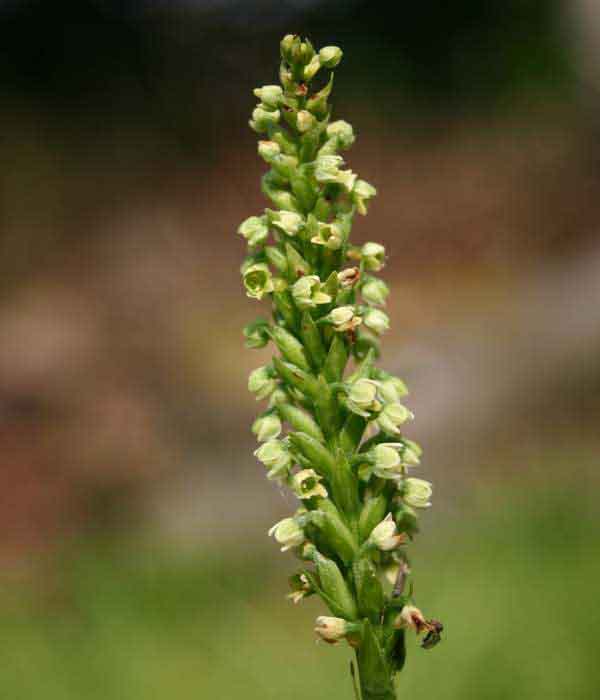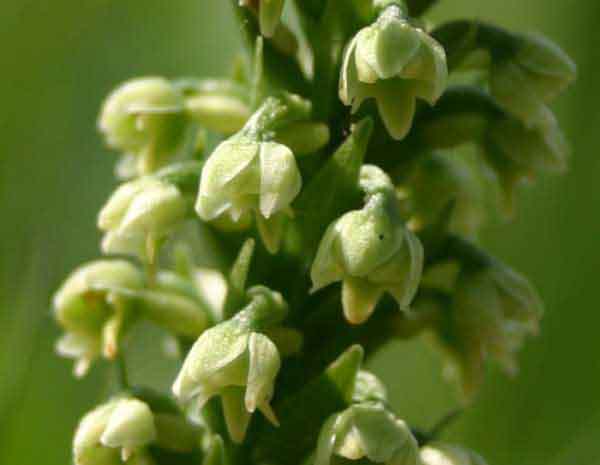Pseudorchis albida (L.) Á. Löve & D. Löve - Small White Orchid
Phylum: Magnoliophyta - Class: Liliopsida - Order: Orchidales - Family: Orchidaceae

The Small White Orchid is now extremely rare and in steep decline throughout the UK, especially in the south, although there are still reasonable numbers to be found in parts of Scotland. It is more likely that you will find this orchid in northern and central European mainland countries including Slovenia.
The plant is small and rather difficult to spot, and the stem seldom grows more that 15 cm tall. It occurs singly or in small groups often along with the Fragrant Orchid - Gymnadenia conopsea . It prefers calcareous to mildly acidic soils and appers in rough pastures. The flowers fade extremely quickly with the lower ones turning brown before those higher up on the stem have even opened.

The specimen shown above was photographed in Wales on a protected site in early June. Many large colonies of the Small White Orchid occur in Iceland.
Varieties and Hybrids
The plants found in Britain are divided into two varieties:
var. albida is found on more acidic soils and has lateral lobes of the lip clearly shorter than the central one.
var. tricuspis grows in alkaline conditions and, as the scientific name suggests, has three more equally sized lobes than those of var. albida.
Etymology
The genus name Pseudorchis comes from Greek and means 'false Orchis'. The specific epithet albida means 'whitish' - a reference to the flower colour.
Taxonomic history
When Carl Linnaeus described this orchid in his Species Plantarum of 1753, he gave it the scientiic name Satyrium albidum. The currently-accepted scientific name Pseudorchis albida (L.) Á. Löve & D. Löve dates from a 1969 publication in: Taxon 18:312 by Icelandic botanist Áskell Löve (1916 - 1994) and his Swedish-born wife Doris Löve.
Reference sources
The Plant List
Sue Parker (2016) Wild Orchids of Wales - how, when and where to find them; First Nature
Anne and Simon Harrap (2005) Orchids of Britain and Ireland; A&C Black
Pierre Delforge (2005) Orchids of Europe, North Africa and the Middle East; A&C Black
Den Nordiska Floran (1992) Bo Mossberg, Stefan Ericsson and Lennart Stenberg; Wahlstrom & Widstrand
Please Help Us: If you have found this information interesting and useful, please consider helping to keep First Nature online by making a small donation towards the web hosting and internet costs.
Any donations over and above the essential running costs will help support the conservation work of Plantlife, the Rivers Trust and charitable botanic gardens - as do author royalties and publisher proceeds from books by Pat and Sue.


